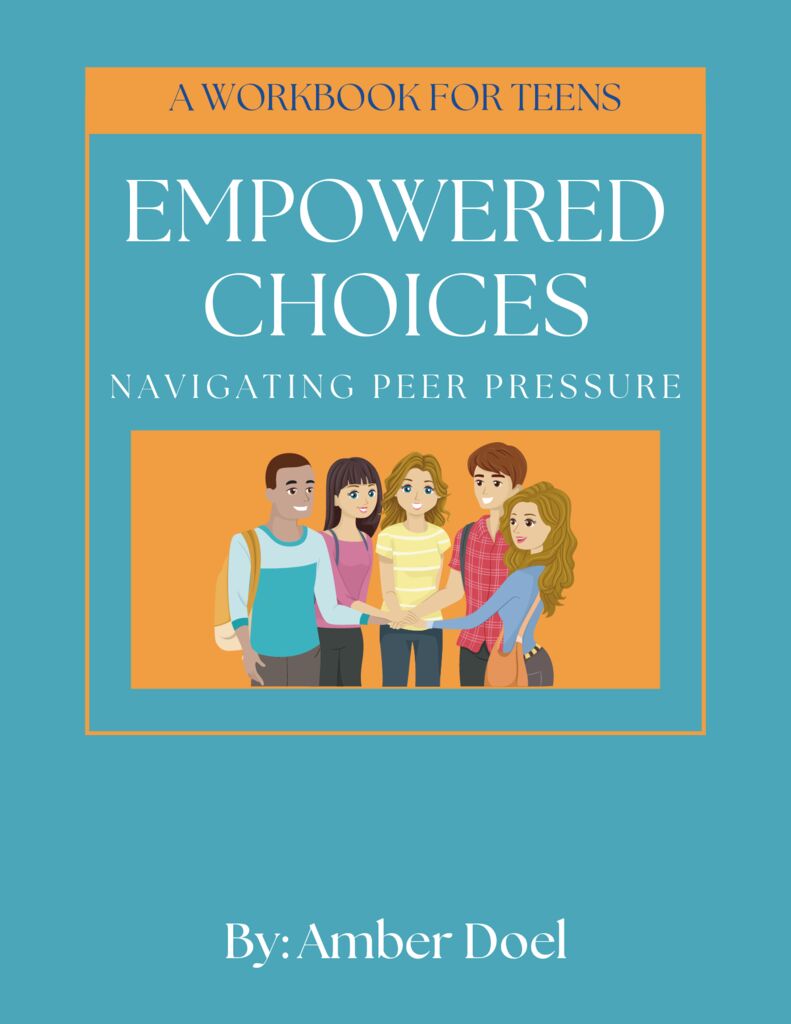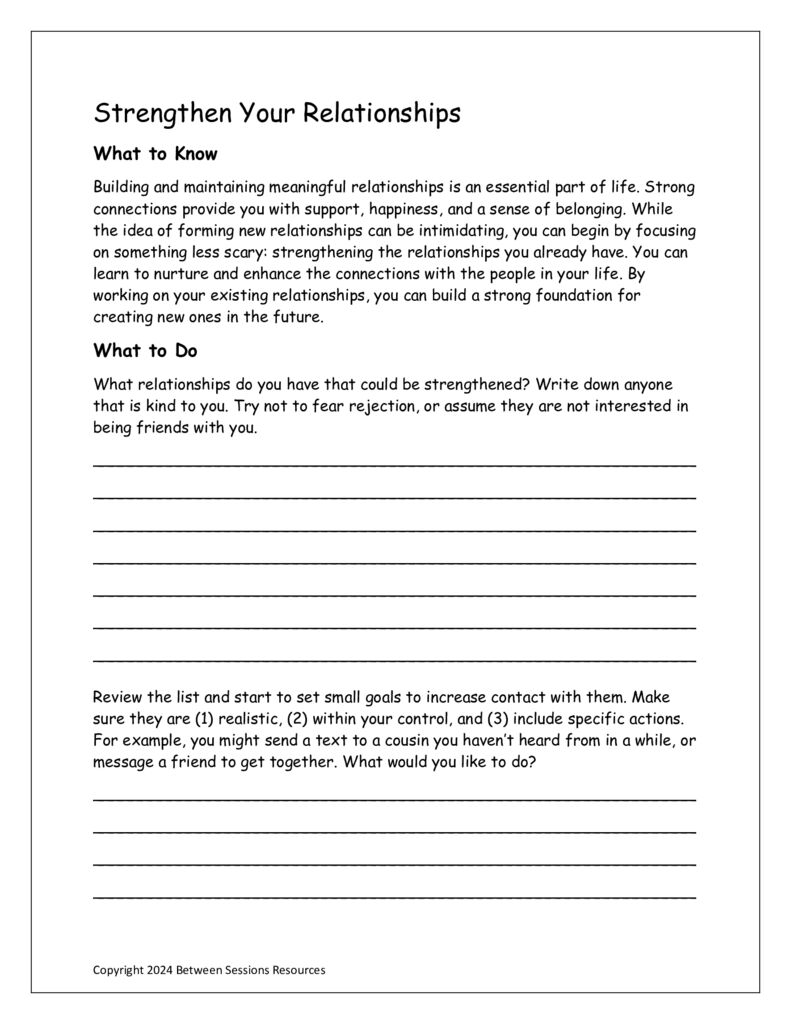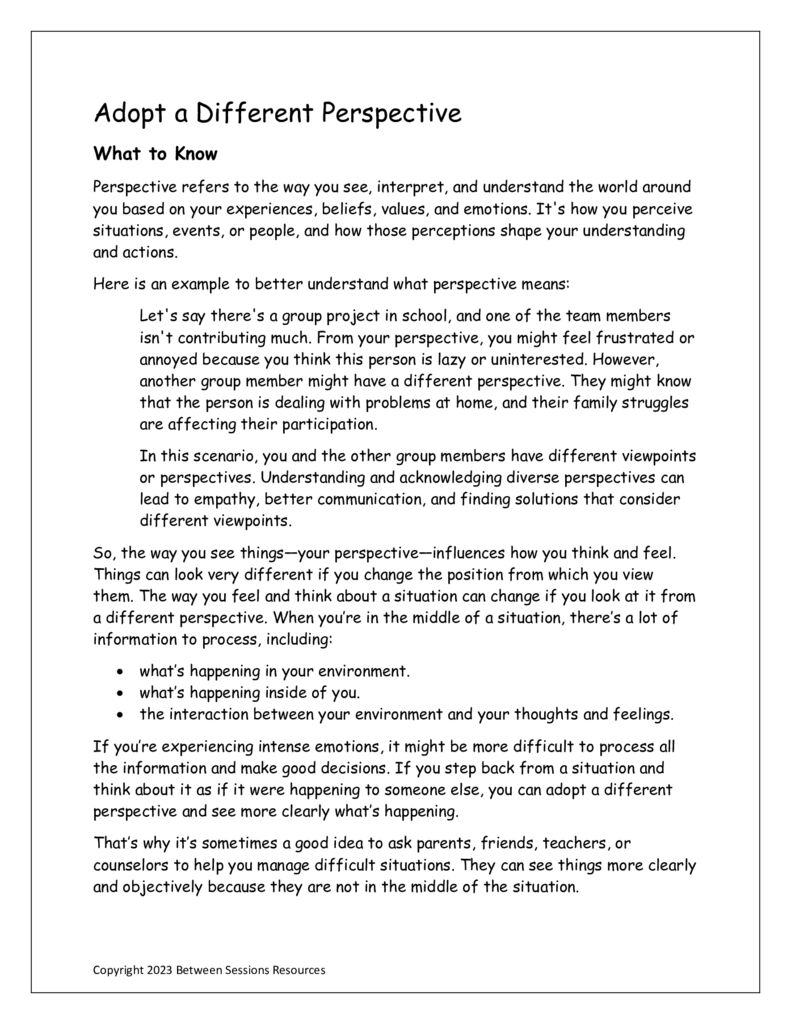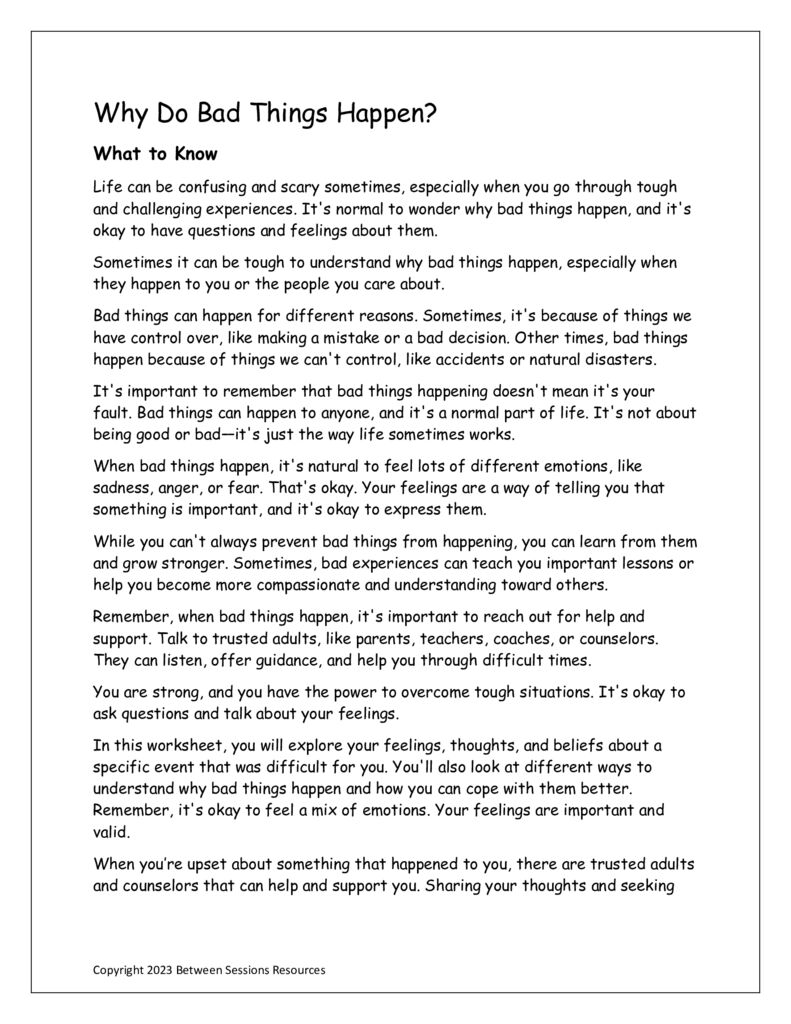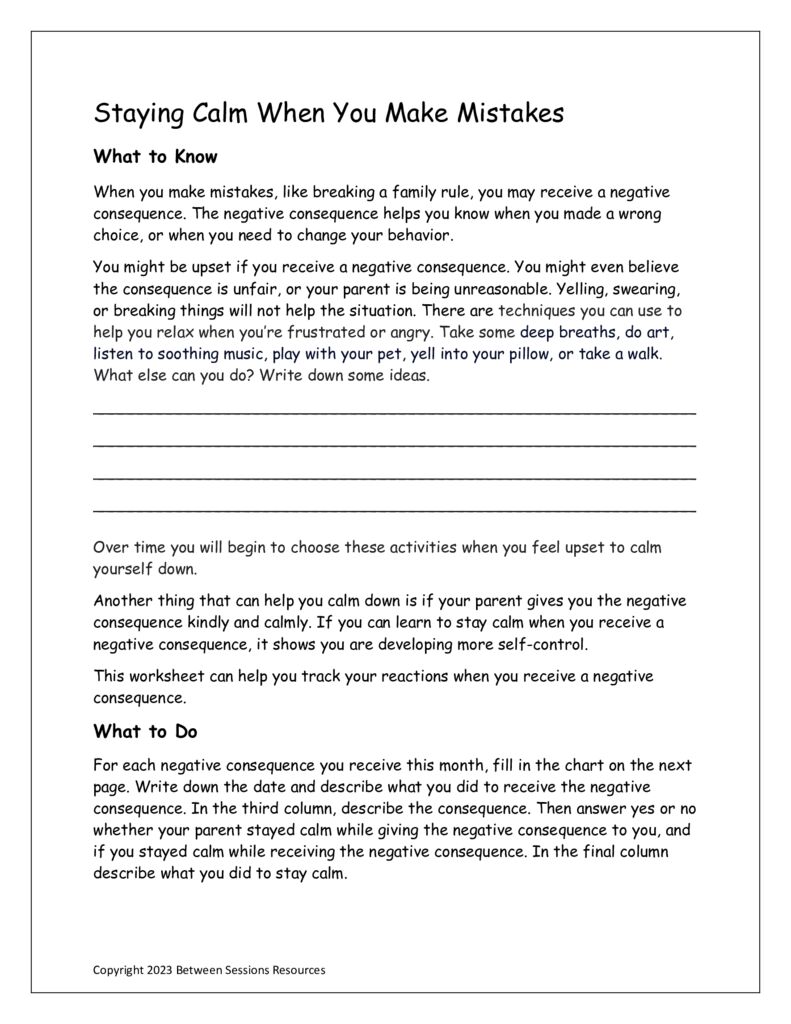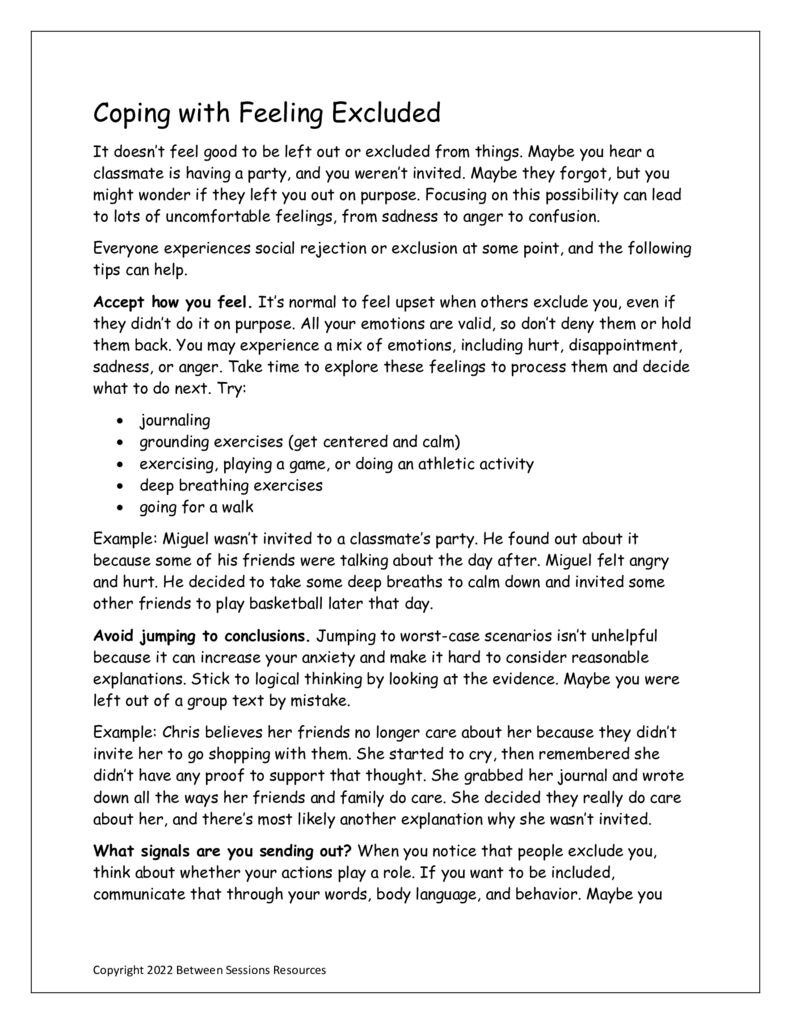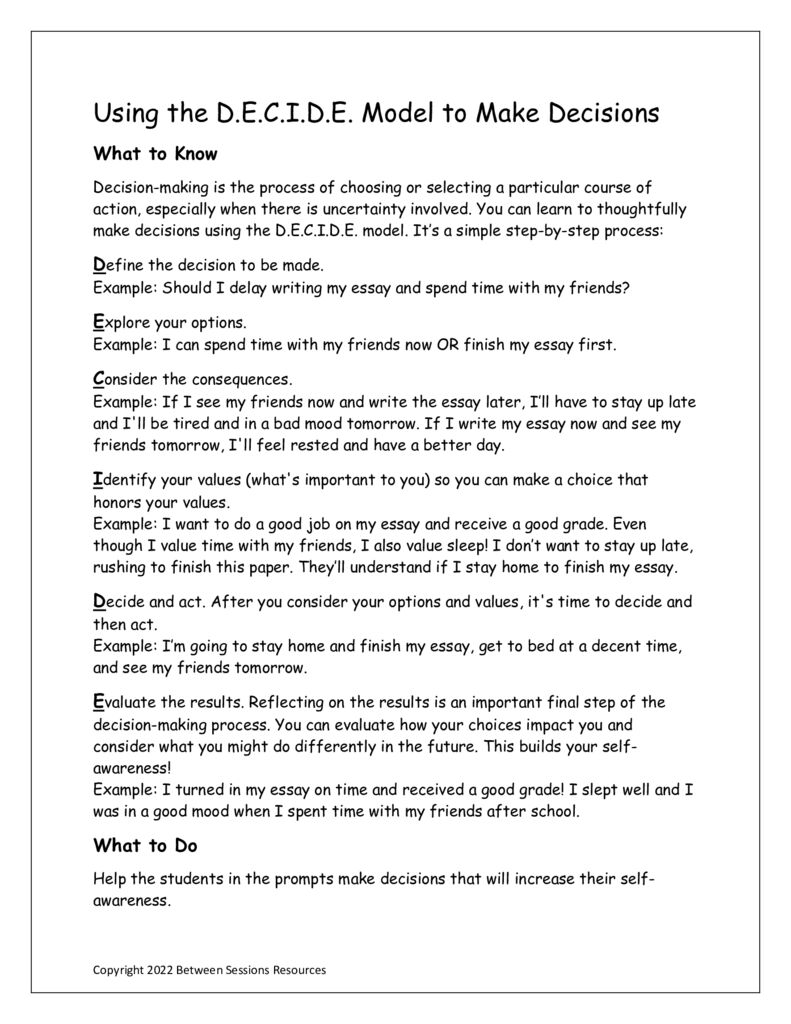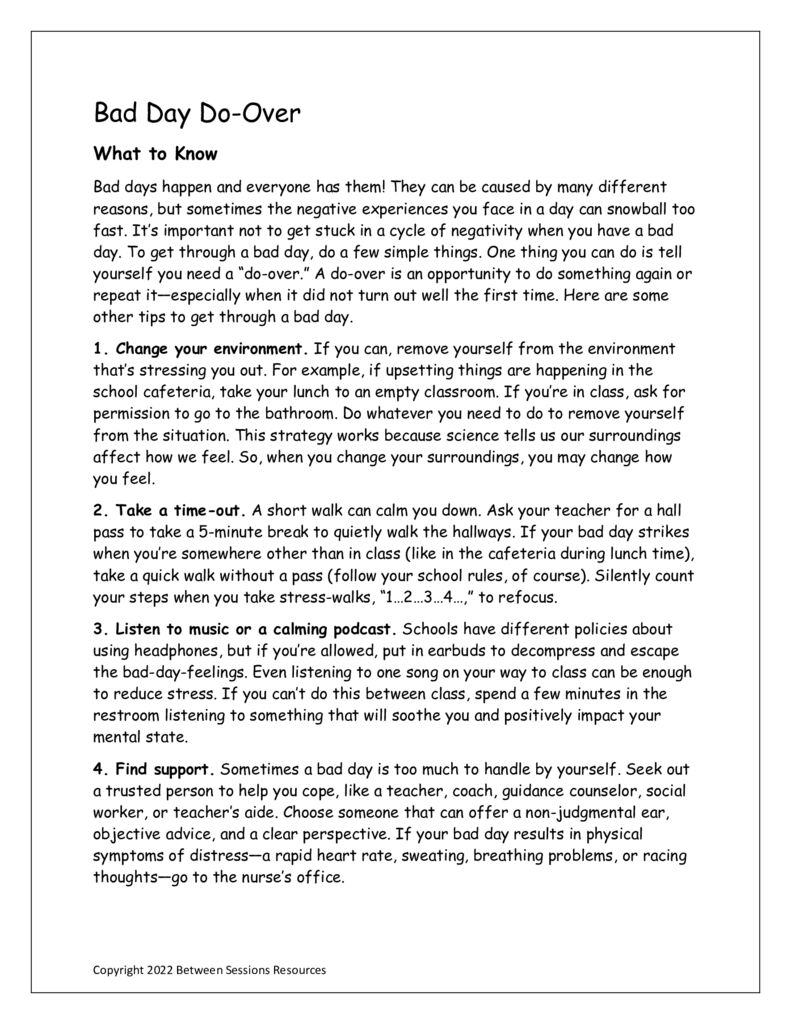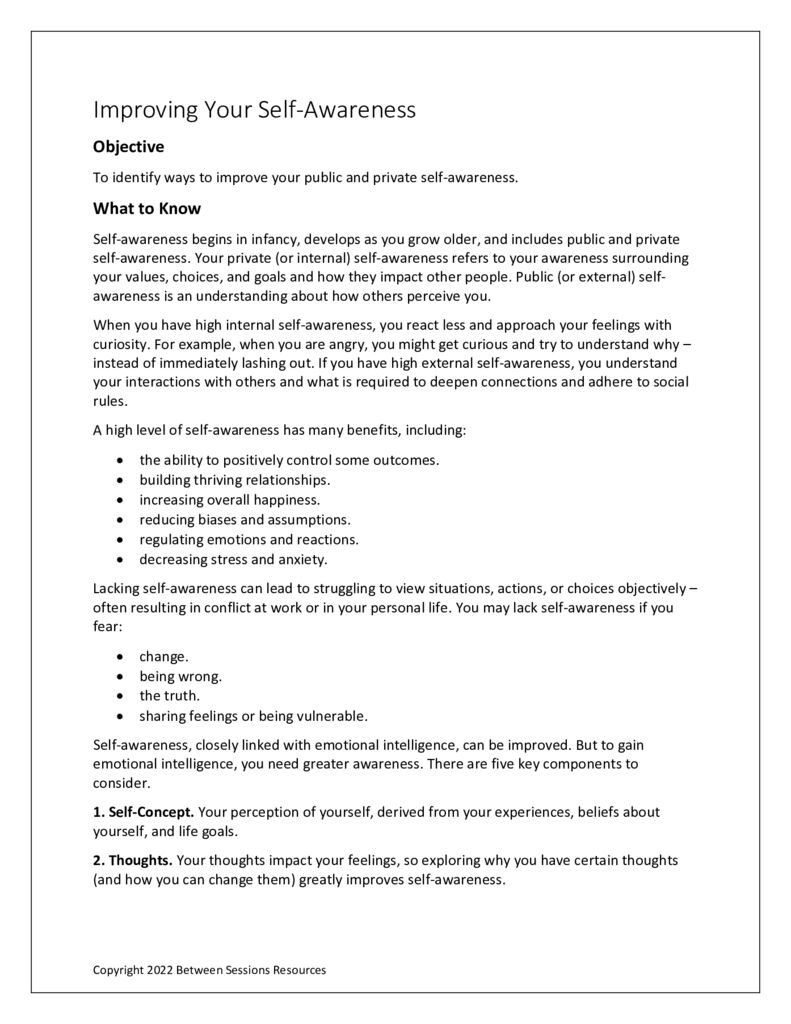Teens face constant changes and transitions and many have a difficult time with these challenges. This worksheet asks teens to divide a circle into four quadrants: thoughts, feelings, challenges, and opportunities. Then it asks teens to explore each of these areas as related to a current change they are dealing with. (0424, transitions, divorce, school problems, friendships)
Written by a teen for teens, this workbook gives kids a toolbox of skills to handle peer pressure while maintaining a positive self-image. 34 pp. (0124. bullying, self-esteem, peer pressure)
This worksheet is designed to help teens build strong peer relationships. It asks them to explore their relationship goals and gives concrete steps to help them connect with others. (0124, Asperger Syndrome, friends, social connection)
This worksheet is designed to help teens develop empathy and perspective-taking. (1123, friends, empathy, social skills)
This worksheet is designed to help teens explore their feelings, thoughts, and beliefs about events in their lives that have been difficult for them to understand and accept. It also gives them coping strategies to deal with difficult feelings. (0723, loss, trauma, healing, grief)
This worksheet is designed to help teens accept the consequences of their actions when they make mistakes such as breaking family rules. (0323, behavior, anxiety, anger control)
This worksheet is designed to help teens deal with being excluded. It instructs them to accept their feelings, avoid jumping to conclusions, communicate their needs, pay attention to their strengths, and more. Questions help teens explore the times they have felt excluded and think about what they could have done differently. (1222, social skills, loneliness, peer pressure)
This worksheet teaches teens the D.E.C.I.D.E model: definite decisions explore options, consider consequences, identify values, decide and act according to your values, and evaluate the adults. The worksheet includes examples of teens making decisions for the teen to consider. (1122, problem-solving, executive functioning, decision-making)
This worksheet gives teens the tools to deal with difficult emotions that can translate into a “bad day.” Learning emotional regulation can of course translate into a lifetime of handling difficulties and stress. (1122, emotional regulation, stress)
This worksheet is designed to help people increase their self-awareness which can help in emotional regulation and in social interactions. A chart is provided to help people keep track of their thoughts and feelings as they encounter challenging situations. (0722, self-awareness, insight, emotional intelligence, emotional regulation, relationships)


